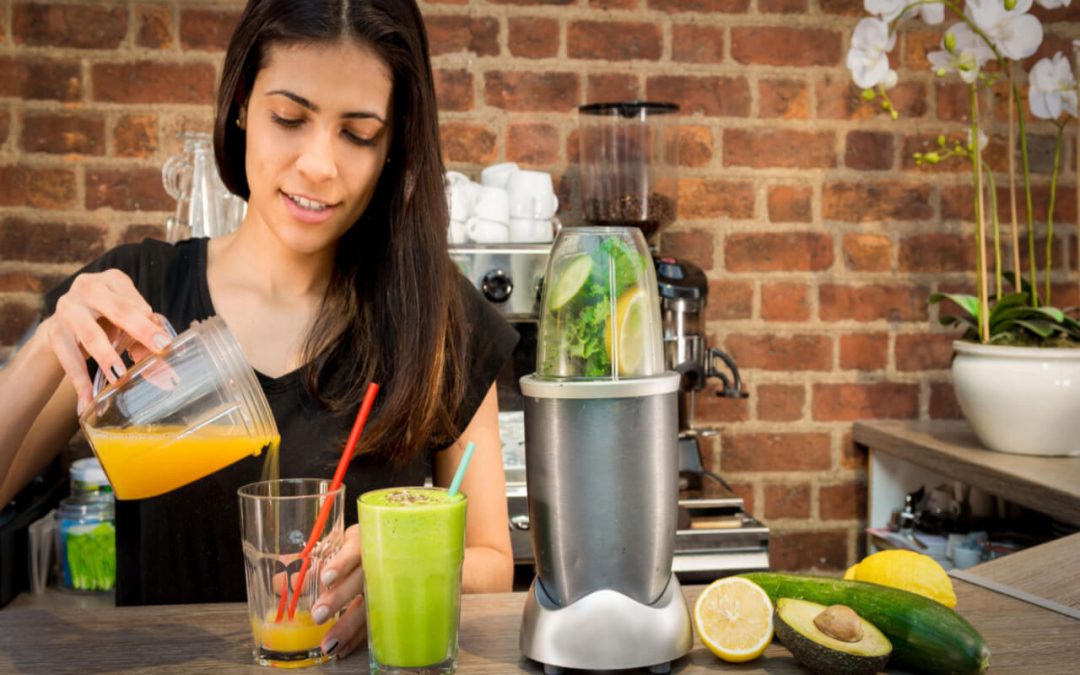Think bacteria, and most of us think of illness-causing organisms. However, there are certain kinds of bacteria that are “friendly” and essential for good health and vitality. We call them Probiotics. These live bacteria and yeasts are good for your overall health, especially the digestive system. They keep the gut healthy and can help treat diarrhoea and may help people with irritable bowel syndrome and Crohn’s disease.
Why not add a probiotic drink or two to your daily diet and ensure that you are at your healthiest?
What are Probiotics?
The word probiotic actually means “for life” and they benefit by improving the balance of flora in the digestive system and helping them do their job more effectively. There are several benefits to consuming probiotics These “good bugs” crowd out the bad bugs in the digestive tract to:
- Help boost immunity
- Reduce inflammation
- Lower blood pressure
- Bring down cholesterol levels
- Enhance learning and memory
- Cure urinary tract infections
- Alleviate symptoms of Irritable Bowel Syndrome (IBS)
- Prevent or treat diarrhoea
- Prevent childhood eczema and allergies
- Improve oral hygiene
- Help you drop the kilos and prevent weight gain
- Boost your mood
There are seven types of friendly bacteria. The most common one is Lactobacillus, the most common probiotic that’s found in yogurt and other fermented foods. Bifidobacterium can be found in some dairy products and can help ease the symptoms of irritable bowel syndrome (IBS) and other conditions. The other kinds include Streptococcus thermophilus, Saccharomyces boulardii, and Bacillus subtilis. Whether or not you know about the types of probiotics, it’s important to make them a part of your daily or weekly diet.
What causes a gut imbalance?
The number of good bacteria in the digestive system can be overtaken by the bad ones, leading to an imbalance. The factors that can lead to this include:
- Consuming too much dietary fat
- Eating a low-fiber diet
- Excess stress
- Exposure to toxic substances
- Eating too many processed and unhealthy foods
- Gastro infection
- Use of antibiotics for long
Consuming a diet rich in probiotics can help clean up the gut and ensure it’s in prime working condition. Apart from adding probiotic-rich foods like curd and sauerkraut to your diet, loading up on a probiotic drink a day can actually keep the doctor away. Try these recipes to stay healthy:
1. BUTTERMILK
This tart liquid is sometimes known as Grandma’s probiotic and is a traditional Indian probiotic with live cultures. But keep in mind that heating buttermilk – while cooking – destroys the live cultures.
Ingredients
- Curd: 1 cup
- Water: 1 glass
- Cumin powder: 1 tsp
- Green chili: 1/2, optional
Method
Step 1: Put all the ingredients, 1 cup curd, 1 glass of water, 1 tsp of cumin powder, and, ½ green chili in a blender and give it a whirl.
Step 2: Serve with some grounded pepper and add ice if needed.
The presence of lactic acid gives this drink a slightly sour taste.
2. Simple Milk Kefir
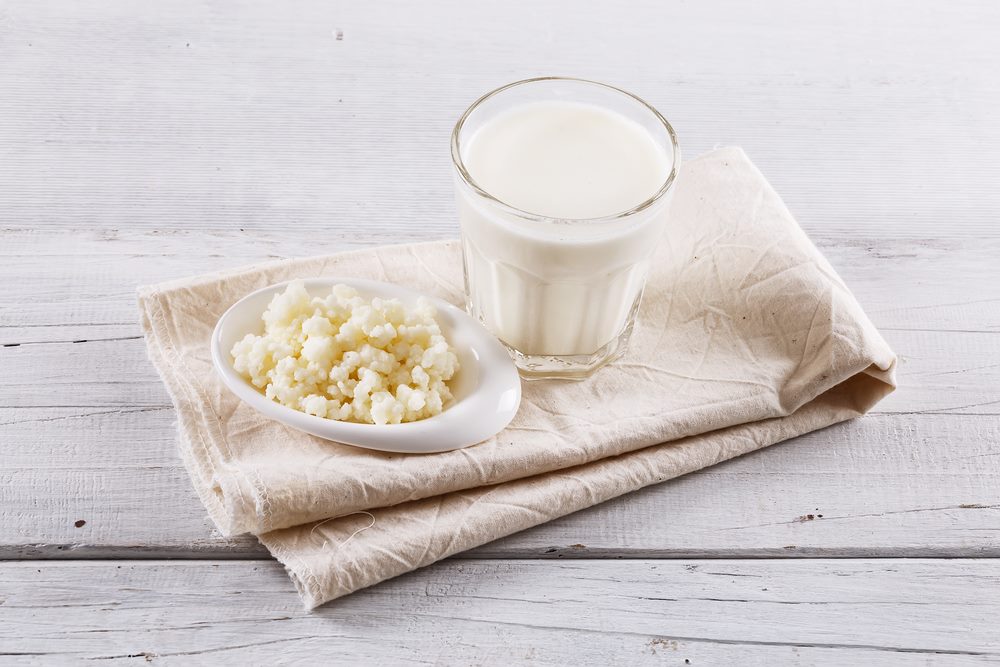
Kefir is a type of fermented milk drink produced with grains as a beginning. It’s nutrient-dense and probiotic-rich. One glass of milk and a few kefir grains are all you need to make this probiotic drink.
Ingredients
- Milk: 1 glass
- Kefir grains, a few
Method
Step 1: Add the rubbery & buttery-looking kefir grains to a glass of milk.
Step 2: Cover and let sit at room temperature for 24 hours.
Step 3: The milk will ferment and thicken.
Step 4: Strain the mix and drink. The kefir can be reused indefinitely.
3. Probiotic Lemonade
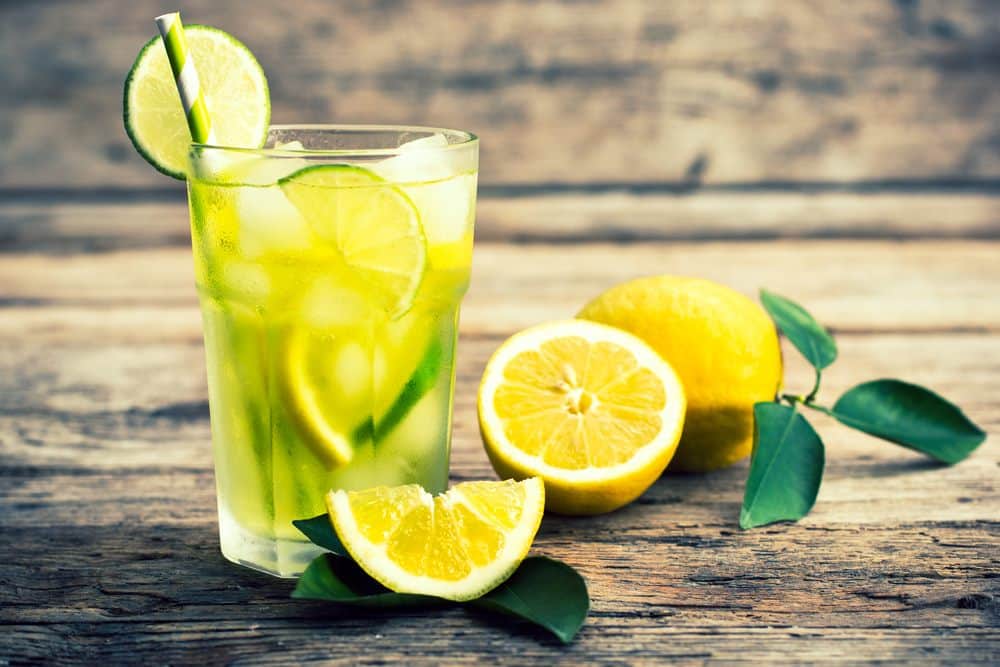
It may not taste like regular lemonade, but this Lacto-fermented probiotic drink is much healthier. This easy recipe can be made without the traditional Kombucha SCOBY or water kefir grains.
Ingredients
- 10 lemons, juiced
- Sugar, ¾ cup
- Whey, 1 cup
- Filtered water, 2.5 to 3 quarts
- A gallon size jar
Method
Put the jaagery into a glass jar and add some hot water to dissolve it. Pour lemon juice into the jar, and fill it up with filtered water. Let it cool. When the liquid is at room temperature, add whey (the liquid left after curdling) to it and stir slowly. Cover the jar tightly and let sit on the counter for 2-3 days. Store in the fridge and drink 4-6 ounces per day.
4. Coconut Water Kefir
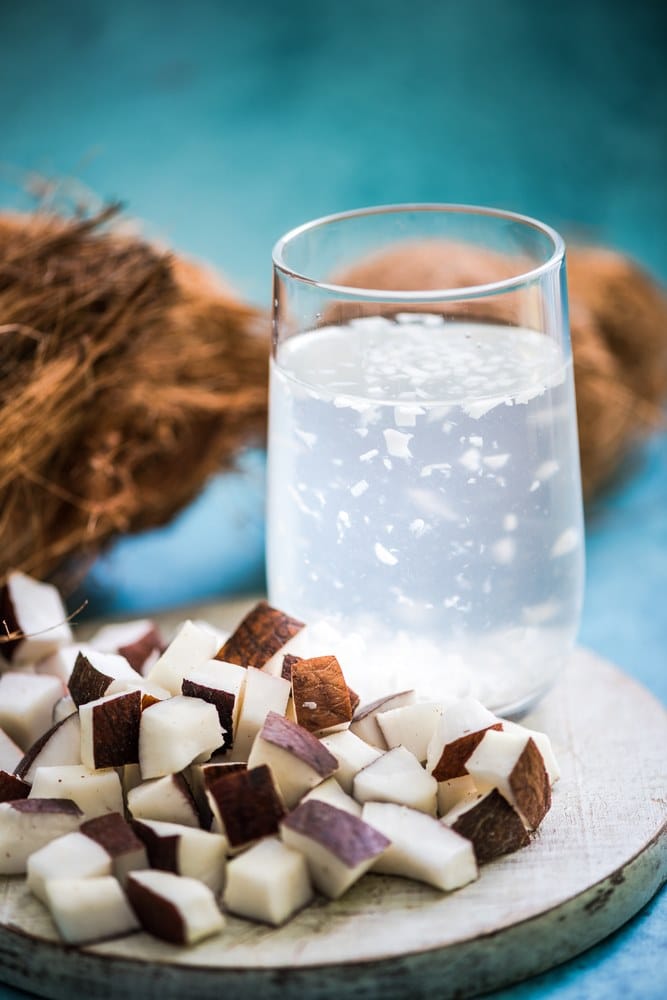
Give coconut water kefir a try if you’re seeking a sugar-free alternative to water kefir. With the addition of probiotics from the water kefir culture, coconut water’s natural deliciousness is improved even more. Furthermore, this fermented drink aids digestion and is especially recommended with or after meals.
Ingredients
- Water kefir grains, ¼ cup
- Fresh coconut water, 6 cups
- Lemon or orange juice, ½ to 1 cup
Method
Step 1: Pour the ¼ cups of water kefir grains and 6 cups of coconut water into a jar.
Step 2: Cover with a cheesecloth and let the mixture stand for up to 48 hours at room temperature.
Step 3: Strain the coconut water kefir and reserve the grains. A second fermentation will make the coconut water kefir fizzy.
Step 4: Mix coconut kefir with ½ to 1 cup of lemon or orange juice and pour into a tight-sealing bottle.
Step 5: Allow fermenting for up to 48 hours. Store in the refrigerator!
5. Fermented Orange Juice
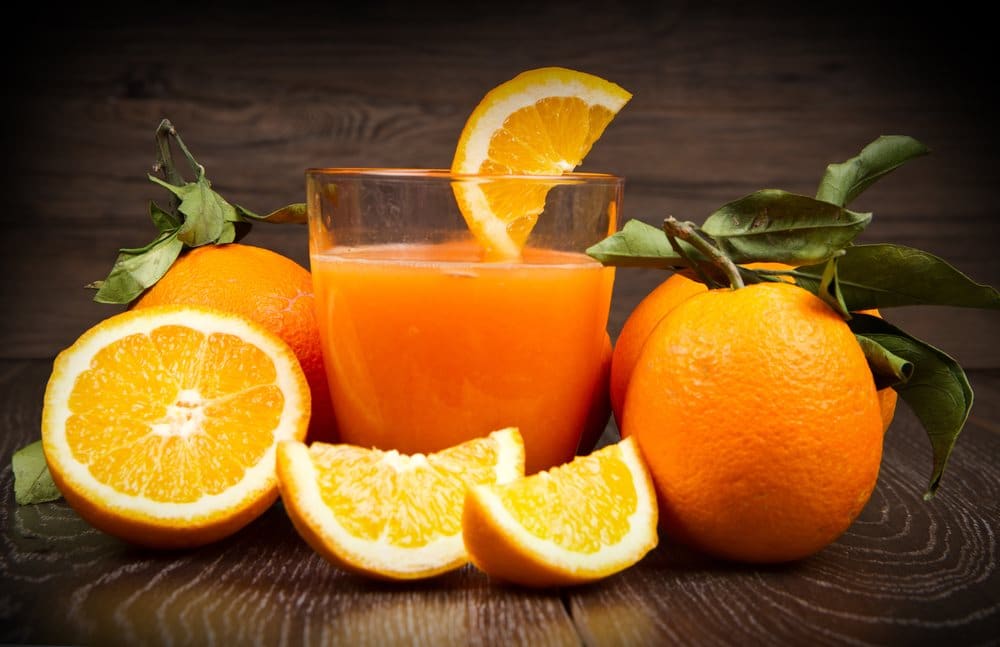
This delicious and sparkling drink – kind of like Orangina – is a treat for your tongue and your gut. In addition, this refreshing orange beverage helps lower your temperature.
Ingredients
- Fresh orange juice, 2 ½ cups
- Water kefir grains, 1/2 tsp, or whey, 2 tbsp
- Filtered water
- Sea salt, to taste
Method
Step 1: Pour the orange juice into a glass jar.
Step 2: Add 1/2 tsp water kefir grains (culture starter) or 2 tbsp of whey, and a pinch of salt.
Step 3: Fill the jar up with approximately 1 cup of water (room temperature).
Step 4: Cover with the lid and give a quick shake.
Step 5: Leave it at room temperature for 48 hours. Follow up by refrigerating it for a few hours, and enjoy!
6. Apple Cider Vinegar Drink
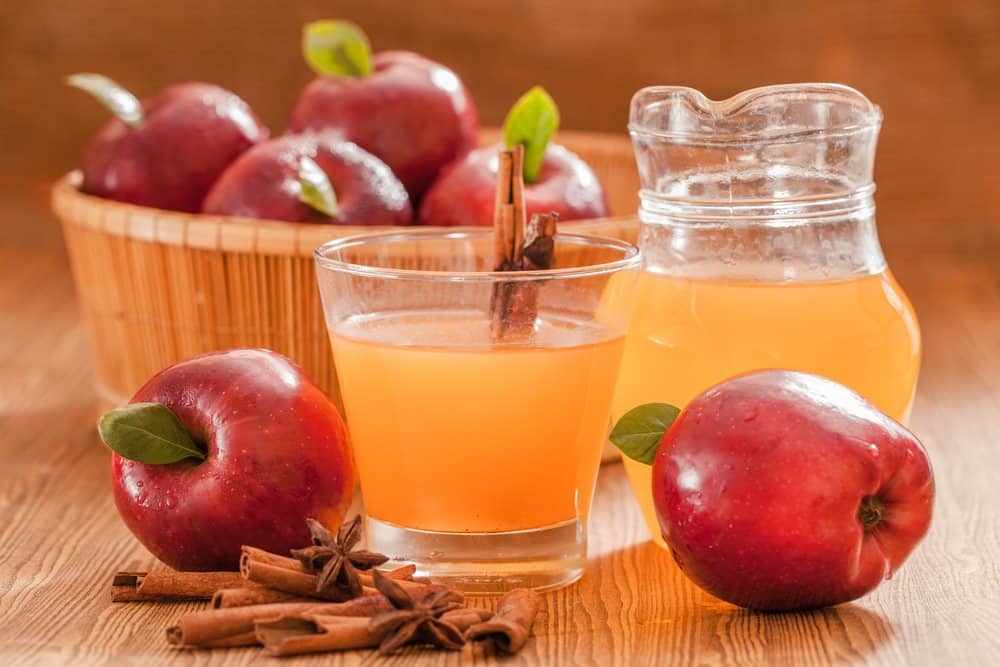
This cocktail-like drink can refresh you on the warmest of days. The naturally fermented raw and unpasteurized apple cider vinegar offers plenty of health benefits.
Ingredients
- Apple cider vinegar, 2 tbsp
- Apple juice, 2 tbsp
- Coldwater, a glass
- Cinnamon, a sprinkle
Method
Step 1: In a glass of cold water add 2 tbsp of apple cider vinegar, and 2 tbsp of apple juice and stir or shake to combine.
Step 2: Sprinkle little cinnamon on top
Step 3: Serve chilled
Note: Make sure you buy raw and unfiltered organic apple cider vinegar.
7. Probiotic Green Juice
Greens are an essential part of the food cycle, and you must consume them on a regular basis to obtain all of the necessary nutrients.
Juicing them allows you to get a plethora of nutrients in a jiffy. Kind of like a green smoothie with a probiotic addition!
Ingredients
- Celery, 2 stalks
- Parsley, 1 handful
- Spinach leaves, 1 handful
- Kale leaves, 1 handful
- Probiotic capsule, 1
Method
Step1: In a mixer, juice 2 stalks of celery, 1 handful of parsley, 1 handful of spinach leaves, and 1 handful of kale leaves.
Step 2: Open the probiotic capsule and empty the contents into the juice.
Step 3: Stir well, and enjoy it!
Summary
Probiotics are beneficial microorganisms that our bodies require to keep us healthy and increase their vitality. They boost immunity, enhance cognitive function, and regulate blood pressure and cholesterol level. Probiotics also help treat urinary tract infections, IBS and diarrhoea. We hope you enjoy all of the recipes we’ve shared here and will give them a try at home for good health.
Frequently Asked Questions (FAQs)
1. Are probiotic drinks good for you?
Yes, probiotic beverages are beneficial to one’s health. They strengthen the immune system and promote heart health by keeping blood pressure and cholesterol levels under check. Probiotics are good for memory and even help keep dental conditions at bay.
2. Can probiotics make you poop?
Probiotics are not laxatives, but if you have constipation or irritable bowel syndrome, they may help you poop more frequently (IBS). Probiotics are generally regarded as harmless, but your body may suffer transient side effects such as bloating and flatulence while it adjusts to the new flux of bacteria.
3. Is it okay to drink probiotic drinks every day?
Yes, drinking probiotics on a daily basis is not only safe but beneficial for health. It’s critical to remember that probiotics are a dietary supplement, not a medication.
4. When should I drink a probiotic drink?
Probiotics work best when taken on an empty stomach to ensure that the beneficial bacteria reach the gut as rapidly as possible. The optimal time to take a probiotic is either first thing in the morning before breakfast or just before bedtime.
5. Do probiotics make you gain weight?
Weight gain and obesity may be exacerbated by some probiotic strains. Lactobacillus acidophilus treatment, in particular, may lead to weight gain in both people.
6. What are the negative effects of probiotics?
Temporary gas, bloating, constipation, and thirst are the most prevalent adverse effects. Some people may also have a negative reaction to probiotic supplement ingredients or naturally occurring amines in probiotic meals. Stop taking probiotics if this happens.
7. Can probiotics cause weight loss?
There is presently no good proof that taking a probiotic supplement will help you lose weight.
8. Do doctors recommend probiotics?
Healthy people may benefit from “good bacteria,” but they aren’t formally recommended. Probiotics are “good” microorganisms that are said to aid digestion and strengthen the immune system. You can receive them from food sources, such as yoghurt, or as a dietary supplement.
9. Can I eat yoghurt and take probiotics?
It’s worth noting that there are a few different ways to consume probiotics. You can take probiotic supplements or eat probiotic foods like yoghurt and cheese. They come in both refrigerated and dried forms.
10. What foods have a lot of probiotics?
Kefir, Sauerkraut, Tempeh, Kimchi, Miso, Kombucha, Pickles, Traditional buttermilk, Natto, and some types of cheese are rich source of probiotics.

